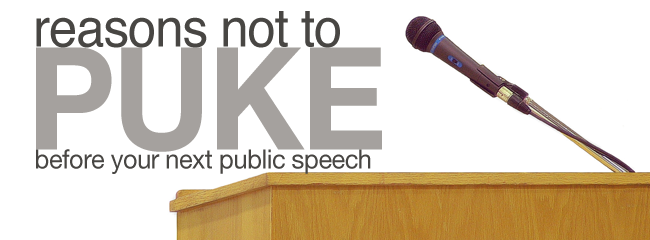Public speaking isn’t for the faint of heart.
It’s one of those things that causes me to be a little nervous every time I do it. When I talk to people that have been speaking publicly for 20, 30, 40 years, they still often admit to having some nerves each time they step in front of other people.
Regardless of the size of the audience or what kind of message you’re bringing, here are 2 reasons I’ve found not to puke before your next public speech…
1. It gets better once you begin.
It never fails. For me at least, it’s always better once I begin. Once I see the crowd, see their faces, and maybe even see some faces that I know, I’m much better and much less nervous. If you have trouble beginning, try beginning with a personal story that you’re familiar with or maybe a joke you know will land. That will help you loosen up.. and the audience.
2. Most people are forgiving.
Most people will forgive you for a little nervousness or misplaced word. Most people know what it’s like to stand in front of colleagues or peers and deliver a speech… they know how nerve racking it can be. Most people are very forgiving. Don’t let that cause you to prepare less, but let it calm your nerves.
OK, for you more experienced than me at speaking…
What advice do you have?

Leave a Reply